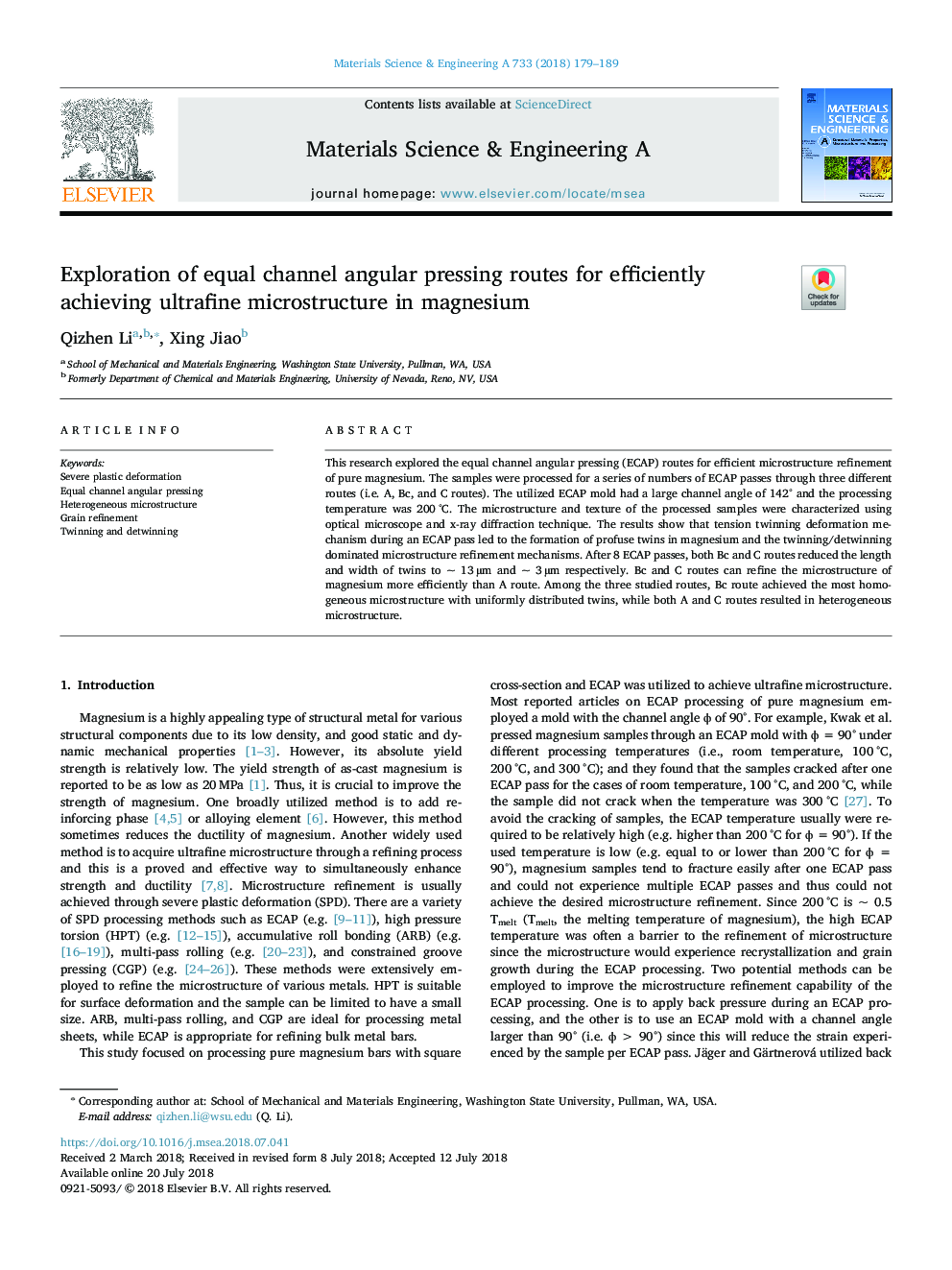| Article ID | Journal | Published Year | Pages | File Type |
|---|---|---|---|---|
| 7971614 | Materials Science and Engineering: A | 2018 | 11 Pages |
Abstract
This research explored the equal channel angular pressing (ECAP) routes for efficient microstructure refinement of pure magnesium. The samples were processed for a series of numbers of ECAP passes through three different routes (i.e. A, Bc, and C routes). The utilized ECAP mold had a large channel angle of 142° and the processing temperature was 200â¯Â°C. The microstructure and texture of the processed samples were characterized using optical microscope and x-ray diffraction technique. The results show that tension twinning deformation mechanism during an ECAP pass led to the formation of profuse twins in magnesium and the twinning/detwinning dominated microstructure refinement mechanisms. After 8 ECAP passes, both Bc and C routes reduced the length and width of twins to ~ 13â¯Âµm and ~ 3â¯Âµm respectively. Bc and C routes can refine the microstructure of magnesium more efficiently than A route. Among the three studied routes, Bc route achieved the most homogeneous microstructure with uniformly distributed twins, while both A and C routes resulted in heterogeneous microstructure.
Keywords
Related Topics
Physical Sciences and Engineering
Materials Science
Materials Science (General)
Authors
Qizhen Li, Xing Jiao,
